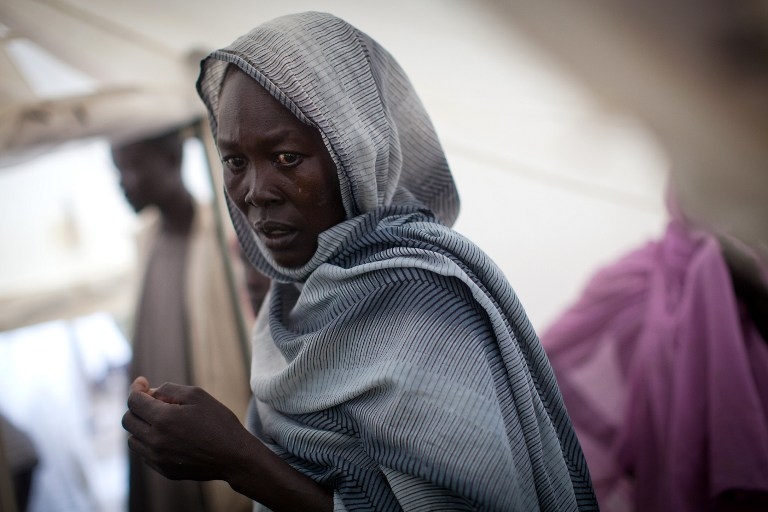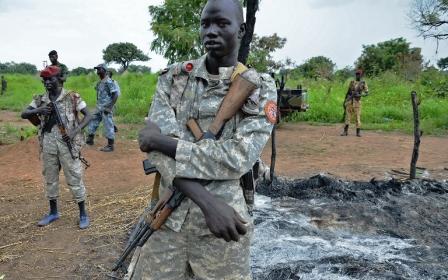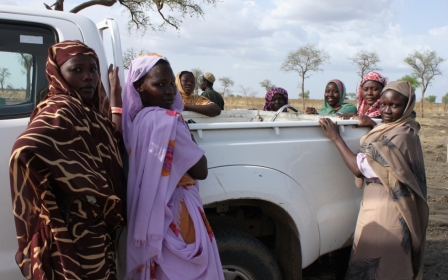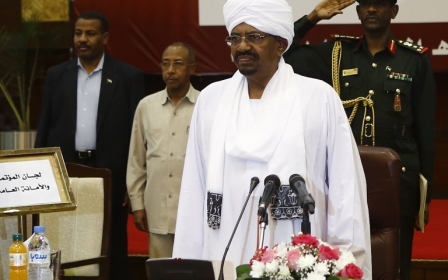Victims of South Sudan sexual abuse get help in Khartoum

Imprisoned by gunmen and sexually abused for two months, South Sudanese teenager Evalina has finally escaped the conflict wracking her country for her birthplace Khartoum.
Once the city where she spent a happy childhood, she has returned as one of some 190,000 South Sudanese seeking shelter in Khartoum from their country's brutal civil war.
Now Evalina - not her real name - has become one of the first South Sudanese women to seek counselling under a programme for victims of sexual violence run by the UN refugee agency (UNHCR) in the city.
Strapped for funding as money flows to other refugee crises around the world, the programme is not helping as many women as the agency would like.
But for Evalina it has been crucial in rebuilding her life.
"We are trying to support them as much as we can, especially with psycho-social care. They cannot absorb what has happened," said Angela Li Rosi, UNHCR's deputy head in Khartoum.
Slightly built and dressed in colourful printed robes, Evalina remembered how gunmen snatched her from South Sudan's Unity State in July last year.
The 17-year-old was waiting near her home as her mother took her six younger brothers to a UN camp near Unity State's capital Bentiu. She didn't know whether the gunmen were soldiers or rebels, just that they were in military uniforms.
"They brought me into a military camp, a small camp, and I stayed there until a general or a brigadier in the army came," Evalina said quietly as she sat in the UNHCR office in Khartoum.
"They gave me to him."
'Perilous journey'
Shut in a tent every day, she was "taken as the commander's wife," and released two months later only when fighting neared the camp. She found her family at the UN base, where she discovered she was pregnant.
South Sudan's conflict erupted in December 2013, when President Salva Kiir accused his former deputy Riek Machar of plotting a coup, setting off a cycle of violence that split the country along ethnic lines.
Tens of thousands of people have been killed and more than 600,000 have fled to neighbouring countries, the UN says.
Evalina gave birth to a daughter in April and shortly after her family joined the exodus and crossed the border, travelling 470 miles to Khartoum, where they had lived before South Sudan split from Sudan in 2011.
The majority of those fleeing to Sudan are women and children - Evalina's father went missing last year.
"While they were taking the perilous journey they were probably faced with difficult situations, including physical assault," Li Rosi said.
UNHCR launched a programme with local NGOs in May to support those who suffered sexual violence in South Sudan.
So far they have assisted just eight South Sudanese women, and dozens more who have fled to Sudan from Ethiopia, Eritrea and Yemen.
Case worker Maria Sabir meets the women who arrive seeking help from the UNHCR and worked with Evalina.
After interviewing the women and arranging medical tests, Sabir refers them for counselling, which they receive twice weekly for three months.
Evalina's case is similar to the other South Sudanese who have come for treatment since May, she said.
'Funding competition'
President Omar al-Bashir granted South Sudanese a special, non-refugee status allowing them freedom of movement.
Most have been housed in camps in White Nile state on the border, but others have travelled to other parts of the country, seeking better conditions.
The UN and its partners know there are probably more South Sudanese who have not come forward after reaching Khartoum and are struggling to identify them.
UNHCR has also faced difficulties mustering funding to cope with the influx of South Sudanese, limiting programmes such as the one that helped Evalina.
"The South Sudanese crisis came at a moment when there are a lot of other crises like Syria, Yemen," Li Rosi said. "There is funding competition."
Evalina's family returned to the Khartoum suburb they left in 2011, where a neighbour offered them free housing.
She was grateful for the counselling.
"I'm very happy with the treatment and I thank the team very much for their help," she says.
But with her brothers and sister to support, as well as her baby daughter, Evalina faces fresh hardships. She dreamt of studying to become a pharmacist but has struggled to find work to help feed the family.
Machar and Kiir signed another ceasefire on 29 August and have already accused each other of breaking it.
Even if there were lasting peace, Evalina said Khartoum seems preferable to Unity State, where her family home has been burned.
"If I go to the south I will go on a visit only," she said.
New MEE newsletter: Jerusalem Dispatch
Sign up to get the latest insights and analysis on Israel-Palestine, alongside Turkey Unpacked and other MEE newsletters
Middle East Eye delivers independent and unrivalled coverage and analysis of the Middle East, North Africa and beyond. To learn more about republishing this content and the associated fees, please fill out this form. More about MEE can be found here.




